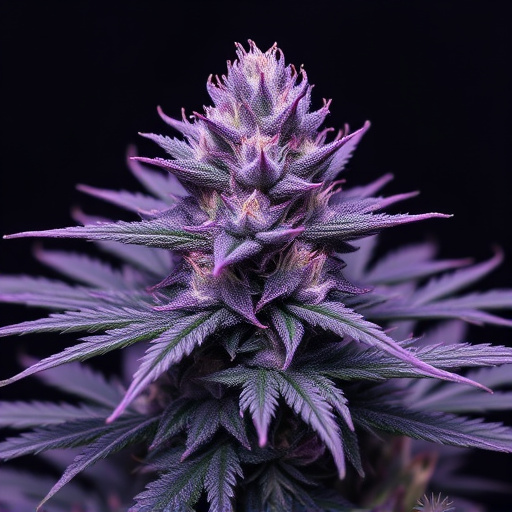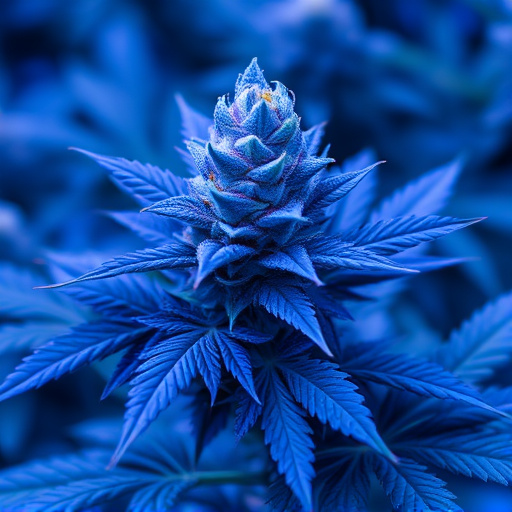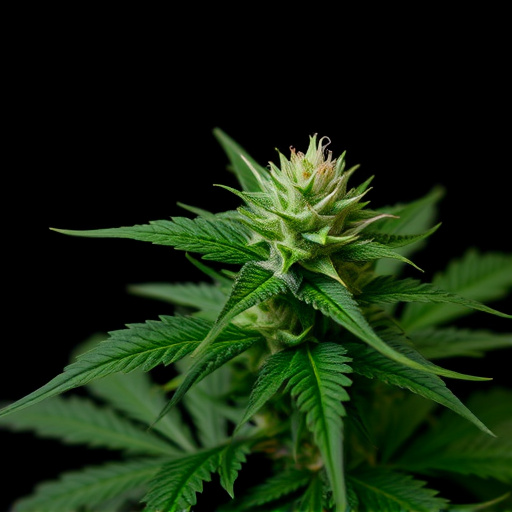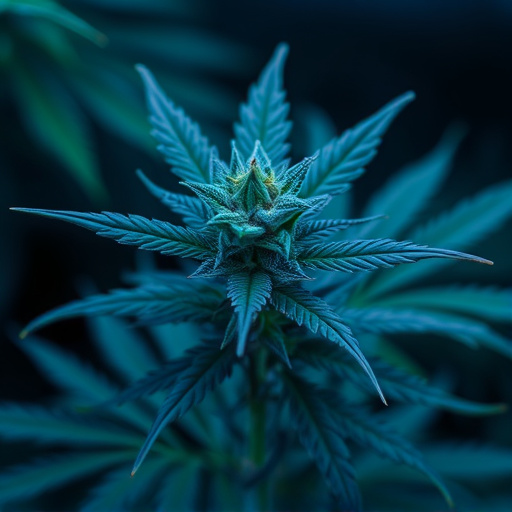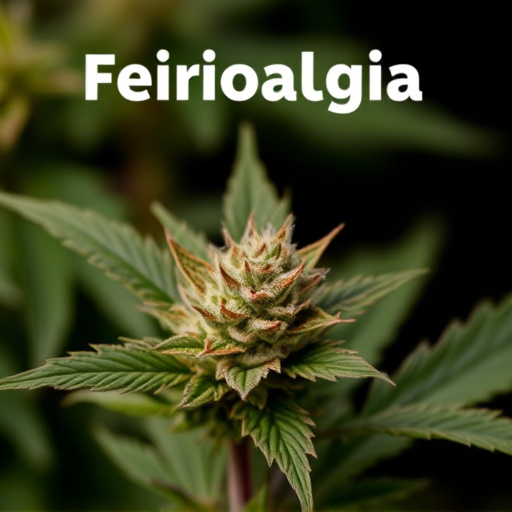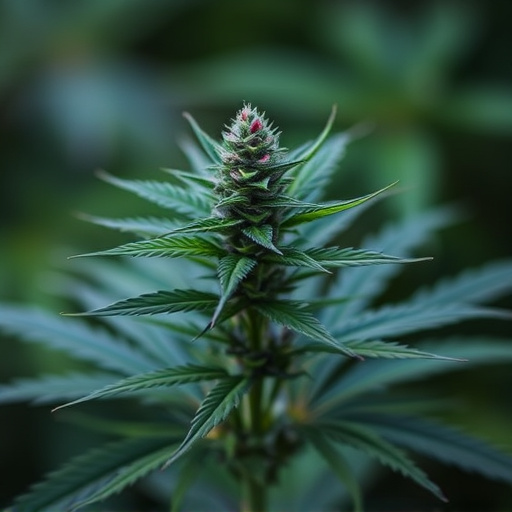Cannabis flowers contain cannabinoids like THC and CBD, which interact with our bodies' endocannabinoid system. THC causes a "high" while CBD offers therapeutic potential without altering mind, aiding in chronic pain and mood disturbances. Different cannabis strains, with varying THC and CBD ratios, can impact mood differently, providing options for fibromyalgia management. Terpenes, aromatic compounds, also influence emotional effects, contributing to cannabis' scents and flavors. High-CBD, low-THC strains are particularly effective for fibromyalgia symptoms, reducing pain and improving sleep without cognitive side effects. Personalized cannabis therapy, guided by healthcare professionals, can minimize adverse reactions, making cannabis a potential game-changer for managing fibromyalgia.
Explore the intricate relationship between cannabis flowers and their impact on mood and emotions. This article delves into the science behind cannabis compounds, particularly terpenes, and their role in shaping emotional responses. We examine how specific cannabis strains can be personalized for managing conditions like fibromyalgia, offering a unique approach to alleviating symptoms and improving overall well-being. Discover the potential of nature’s medicine and its profound effects on mental health.
- Understanding Cannabis Compounds and Their Impact on Mood
- The Role of Terpenes in Cannabis' Emotional Effects
- Cannabis Strains for Fibromyalgia Management: A Personalized Approach
Understanding Cannabis Compounds and Their Impact on Mood
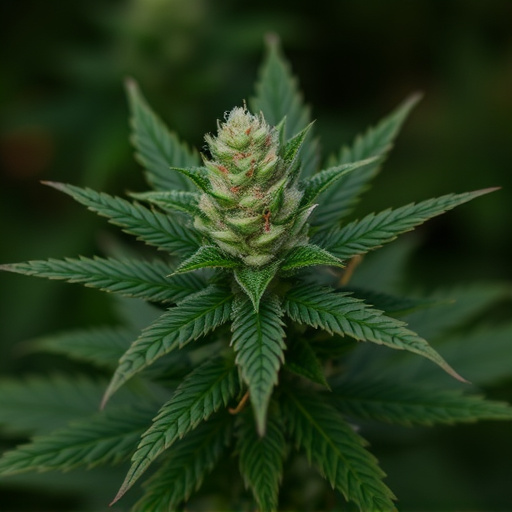
Cannabis flowers contain a complex mix of chemical compounds, the most well-known being cannabinoids like THC (tetrahydrocannabinol) and CBD (cannabidiol). These compounds interact with our bodies’ endocannabinoid system, which plays a significant role in regulating mood, memory, and perception. When we consume cannabis, these molecules bind to receptors in our brain, influencing neurotransmitters that control emotions.
THC is known for its psychoactive effects, inducing feelings of euphoria and relaxation. While this can be beneficial for some, it may also lead to anxiety or paranoia in others, especially with higher concentrations. On the other hand, CBD does not produce a “high” but has been studied for its potential therapeutic effects on conditions like fibromyalgia, offering relief from chronic pain and associated mood disturbances without the mind-altering effects of THC. Different cannabis strains, each with varying ratios of these compounds, can thus impact mood differently, providing options for individuals seeking specific outcomes, such as those using cannabis strains for fibromyalgia management.
The Role of Terpenes in Cannabis' Emotional Effects
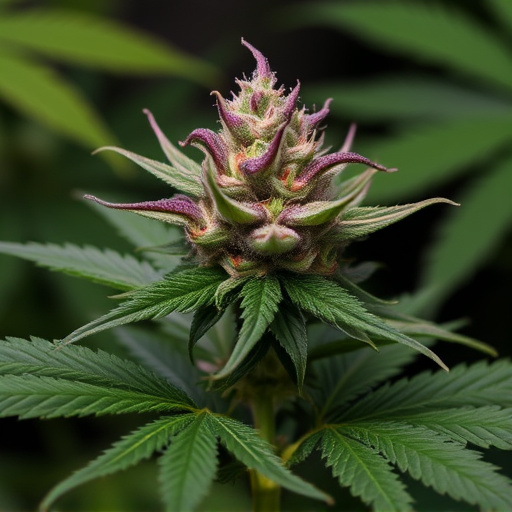
Terpenes, the aromatic compounds found in cannabis flowers, play a significant role in shaping the plant’s emotional and mood-altering effects. These volatile oils are responsible for the distinct scents and flavors associated with different cannabis strains. Beyond their contribution to the sensory experience, terpenes have been linked to modulating mood and emotions through various mechanisms. For instance, myrcene, a common terpene in many cannabis strains, is known for its relaxing and sedative properties, which can help alleviate symptoms of anxiety and promote better sleep—a potential benefit for individuals with fibromyalgia seeking relief from chronic pain and insomnia.
Linalool, another notable terpene, is often associated with inducing feelings of calm and relaxation. It has gained attention for its potential to reduce stress and improve overall well-being. In the context of cannabis strains for fibromyalgia, certain varieties high in linalool can offer a soothing experience, helping to manage pain perception and enhance emotional resilience. The interaction between terpenes and cannabinoids, such as THC and CBD, further complicates the emotional response to cannabis, providing a rich landscape of effects that cater to various needs and conditions.
Cannabis Strains for Fibromyalgia Management: A Personalized Approach

Cannabis has emerged as a potential tool in managing symptoms of fibromyalgia, a chronic pain condition characterized by widespread musculoskeletal pain, fatigue, and sleep disturbances. Different cannabis strains offer unique chemical profiles, with specific compounds like THC (tetrahydrocannabinol) and CBD (cannabidiol) having distinct effects on the body. For individuals with fibromyalgia, personalized approaches to cannabis therapy are key.
Certain cannabis strains known for their high CBD content have gained attention due to their potential anti-inflammatory and pain-relieving properties. These strains may help mitigate chronic pain and improve sleep quality without inducing the cognitive impairment associated with THC. A tailored approach involves consulting healthcare professionals who can guide patients in selecting strains that align with their specific needs, ensuring optimal relief while minimizing any adverse effects.
Cannabis’ complex interplay of compounds, particularly terpenes and cannabinoids, offers promising relief for managing conditions like fibromyalgia. By understanding how different cannabis flowers affect mood and emotions, individuals can make informed choices about suitable strains. A personalized approach to cannabis therapy, considering both the science behind its components and individual needs, paves the way for effective treatment options for fibromyalgia symptoms. Cannabis strains specifically bred for their therapeutic properties provide a glimmer of hope for those seeking natural relief.





